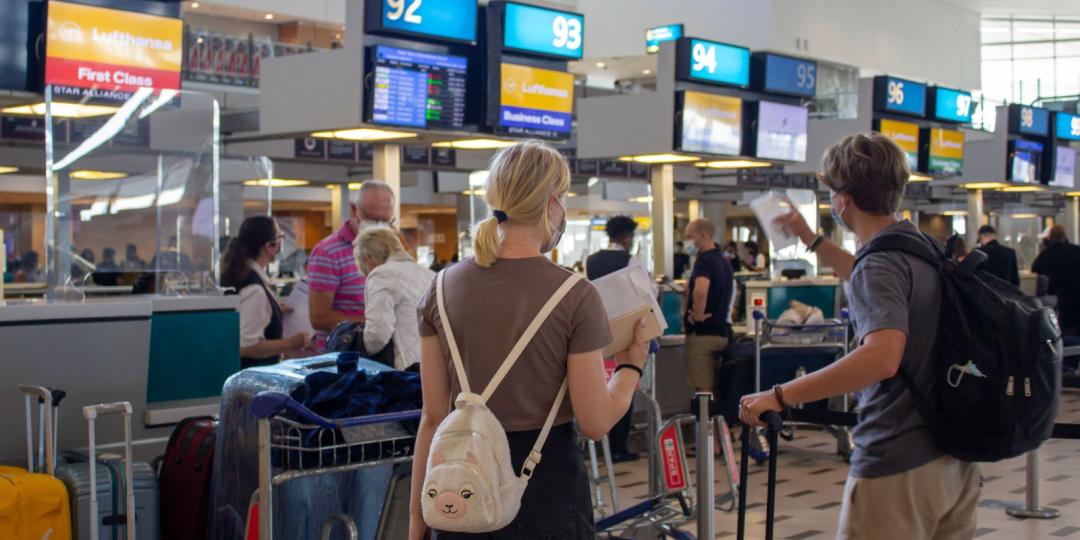The Western Cape Government has expressed concern about the decline in international passenger numbers recorded at Cape Town International Airport since December 2019, with stakeholders committing to working together to address the barriers to growth.
The Cape Town Air Access team released the figures on Friday (January 15), which further showed that domestic tourism had increased notably between 2020 and 2021 but also remained below 2019 levels.
Western Cape Premier, Alan Winde, said: “It is upsetting that we are passing another summer season with so much lost opportunity for the tourism and hospitality sector and the jobs it creates.
“While we are expecting some growth this year, these statistics demonstrate the urgency required by government to focus on the second pandemic of unemployment and ensure that we get tourism jobs back in the Western Cape.”
Speaking about the impact on the tourism and hospitality sector, Western Cape Minister of Finance and Economic Opportunities, David Maynier, said: “The most recent international travel restrictions had a devastating effect on our peak international tourist season in the Western Cape. I am pleased that international passenger arrivals are set to recover in January 2022 and are already showing signs of an uptick in January compared with December 2021.”
He pointed out that tourism was a key driver of job creation and economic growth in the Western Cape.
“We will continue to do everything we can to support economic recovery by tackling barriers to growth, increasing connectivity to the region, and running our award-winning destination marketing campaigns that showcase the best that Cape Town and the Western Cape has to offer,” he said.
Flight bookings increased when bans were lifted
Mayoral Committee Member for Economic Growth at the City of Cape Town, James Vos, agreed that the festive season figures would have been much higher had international governments not slapped travel restrictions on South Africa, highlighting that, as the bans were lifted, flight bookings began to climb, according to data from Iata.
“This latest information underscores the value of aviation to travel and trade in the metro. Every air traveller that lands in Cape Town helps to support our economy and create more jobs,” he said.
Vos noted that in 2019, the airport alone helped funnel just under R14 billion (€795.8m) of revenue into the Mother City and supported over 28 000 jobs.
“As such, my officials and I have already had discussions with Wesgro to plot our economic opportunities plan of action to promote investment and export possibilities. I am determined to get the ball rolling on this.”
Vos added that the plan would prioritise the Air Access initiative and programmes focused on boosting Cape Town’s access to key source markets.
Key findings of the Cape Town Air Access report
- In 2019, before the COVID-19 pandemic, international return trips totalled nearly 2.6 million. In 2020, this figure declined to 810 811 and in 2021, it declined further to 525 411.
- Between November and December 2021, Cape Town International Airport (CTIA) saw a decline from 96 323 to 76 522 international trips (inbound and outbound) owing to the detection of the Omicron variant and the cancellation of flights and bookings.
- International passenger recovery in December 2021 was 27% of 2019 figures. This was lower than the 38% reported in November 2021.
- Comparing occupancy from December 2019 to November 2021, the figures show a decline from 70.2% to 54.1%. In November 2019, occupancy was 76.7%.
- In 2019, before the restrictions, domestic return trips totalled over 8.4 million. In 2020, this figure declined to 3.2 million and in 2021 it stood at just 4.2 million, half of the pre-COVID-19 total.
- Positively, the recovery of domestic passenger arrivals grew to 65% from 467 159 in October 2021 and again to 457 599 or 66% in November 2021, and 520 508 in December 2020, a 76% recovery.























